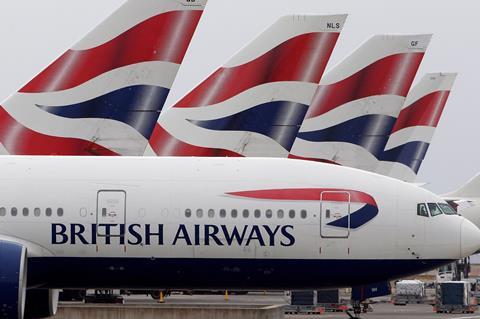An attempt to bring a representative action worth £319m for delayed flights over six years has been thrown out by the High Court.
Claire Smyth, whose British Airways flight had been delayed in 2022, had tried to bring the claim effectively on behalf of a potential 23 million passengers of BA and EasyJet whose flights going back to 2016 were delayed but where they may not have received compensation.
But it emerged during the two-day hearing in July that Smyth was employed by Monaco-based Australian businessman John Armour. She had met Armour when she had been his yoga instructor and was now running a family office for him in London.
Smyth – and by extension Armour – stood to make 24% of any compensation recovered by her on behalf of passengers, a sum which could reach up to £70m. She had been indemnified in respect of adverse costs orders by Armour, who also provided more than £800,000 security for the defendants’ costs.

In Smyth v British Airways PLC & Anor, Master Davison, ruled that there was a ‘lack of transparency regarding Ms Smyth’s motivation, funding and suitability’.
He continued: ‘I do not accept that her motivation lies in a desire to secure redress for consumers. She has had no prior involvement in such activities. Her evidence suggests or is only really consistent with that interest having been sparked by the chance (though common enough) experience of her cancelled flight. But she has not explained how and by what process that led her to the very considerable undertaking of a representative action brought by her on behalf of many millions of others. The availability of funding from Mr Armour, her employer, strikes me as unlikely to have been fortuitous.’
The airlines had argued that they operated refund schemes with accredited ADR providers which made no deductions from compensation. Smyth argued there was low awareness of passenger rights and that the airlines did the ‘bare minimum’ to inform their customers of redress options.
In court, the airlines submitted that the ‘same interest in a claim’ test was not met: there was no common issue in which the proposed class members had the same interest and Smyth was trying to aggregate millions of individual passengers. The proposed representative action would impose an enormous burden of administration and cost, as well as create data protection issues. The real motivator behind the claim was Armour himself, the airlines submitted, the ‘antithesis of a consumer champion’ with a direct influence over Smyth.
Smyth argued that her funding arrangements were not disclosable and denied the existence of any inappropriate control by Armour.
The judge ruled that the proposed representative action could not go forward and that the dominant motive ‘lies in the financial interests of its backers, principally Mr Armour, and not the interests of consumers’.
The master added: ‘That motive has translated into a proposed deduction from the compensation available to each represented party which is excessive and disproportionate both in its overall amount and in relation to the available alternative remedies, which would lead to no deduction at all.’
This article is now closed for comment.



























14 Readers' comments